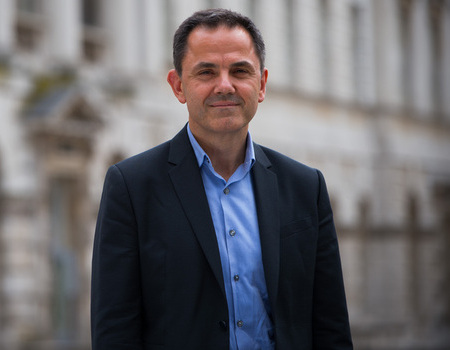Minimum Core Obligations: Human Rights in the Here and Now

Professor Tasioulas offered an account of the concept of minimum core obligations as those obligations associated with a human right that must be immediately fully complied with by all states. They are, in that sense, obligations to which the doctrine of ‘progressive realization’ is inapplicable. Professor Tasioulas distinguishes this understanding of the minimum core from interpretations that add extra elements, such as justiciability, non-derogability or special normative grounding. Having set out the concept of a minimum core obligation, he then explains the value of this concept as a response to the problem of priority-setting when implementing human rights obligations. He also offers guidelines for determining the content of minimum core obligations, taking as an illustration the treatment of the human right to health.
The paper concluded by addressing three major challenges: (a) is the minimum core the same for all states, or should it vary in light of their different resource levels? (b) if the minimum core is invariant across states, does this render it objectionably insensitive to important contextual differences? and (c) is the recognition of a ‘minimum core’ of human rights obligations potentially counter-productive in practice insofar as it poses a risk of unduly downgrading the importance of non-core obligations.
John Tasioulas is the inaugural Chair of Politics, Philosophy & Law and Director of the Yeoh Tiong Lay Centre for Politics, Philosophy, and Law at the Dickson Poon School of Law, King’s College London. During the Spring quarter of 2016 he was a Visiting Professor of Law at the University of Chicago Law School.
Professor Tasioulas has degrees in Law and Philosophy from the University of Melbourne, and a D.Phil in Philosophy from the University of Oxford, where he studied as a Rhodes Scholar. He was previously a Lecturer in Jurisprudence at the University of Glasgow and Reader in Moral and Legal Philosophy at the University of Oxford, where he taught from 1998-2010. His most recent appointment was as Quain Professor of Jurisprudence at University College London.His research is in the areas of moral, legal and political philosophy, with a special emphasis in recent years on human rights and international law. Recent and forthcoming publications include ‘On the Foundations of Human Rights’ in R. Cruft, M. Liao and M. Renzo (eds.), Philosophical Foundations of Human Rights (OUP, 2015), ‘Custom, Jus Cogens, and Human Rights’, in C. Bradley (eds.), Custom’s Future (CUP, 2016) and ‘Just Global health: Integrating Human Rights and Common Goods’ (with E. Vayena), in T. Brooks (ed.), The Oxford Handbook of Global Justice (OUP, forthcoming).Professor Tasioulas is an Honorary Professorial Fellow at Melbourne Law School, a Distinguished Research Fellow of the Oxford Uehiro Centre for Practical Ethics, an Emeritus Fellow of Corpus Christi College, Oxford and a member of the Academia Europaea. He has delivered the ‘Or ‘Emet Lecture at Osgoode Hall Law School (2011) and the Natural Law Lecture at Notre Dame Law School (2012). He serves on the editorial boards of the American Journal of Jurisprudence, the American Society of International Law Studies in International Legal Theory, the Journal of Applied Philosophy, and Moral Philosophy and Politics.